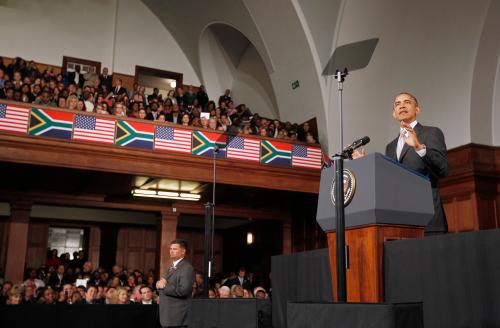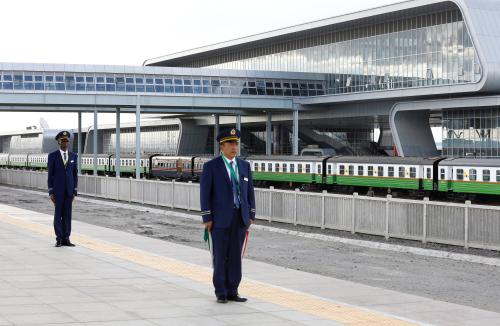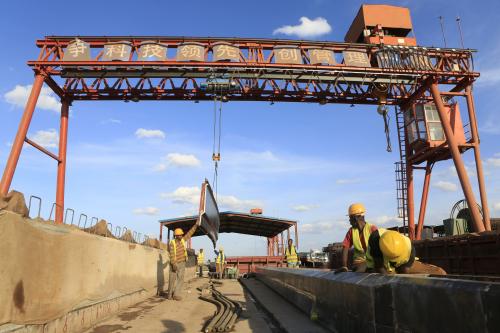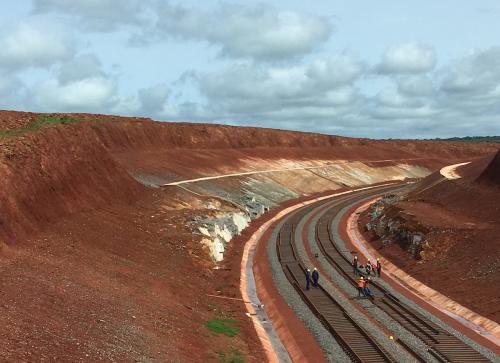Report shows global decrease in FDI inflows, but FDI to Africa remains unchanged
This week the United Nations Conference on Trade and Development (UNCTAD) released its annual World Investment Report, which highlights the latest trends and developments in international investment. The 2015 report indicates that foreign direct investment (FDI) inflows declined globally by 16 percent to $1.2 trillion in 2014; however, FDI to Africa remained virtually constant at $54 billion—although inflows varied significantly by region, sector, and source. In 2014, Central and East Africa experienced the highest growth of FDI inflows at 33 percent (to $12 billion) and 11 percent (to $6.8 billion) respectively, whereas FDI flows to North, West, and Southern Africa decreased by 15 percent (to $11.5 billion), 10 percent (to $12.8 billion), and 2 percent (to $10.8 billion), respectively.
Greenfield FDI projects were largely concentrated in the services sector (60 percent of all projects) and manufacturing (33 percent) in 2014. Further demonstrating its longstanding importance to the region, the services sector held the largest share of total African FDI stock (from 2001-2012) at 48 percent while manufacturing comprised 21 percent of FDI stock, and the primary sector constituted 31 percent. Multinational enterprises (MNEs) from developed countries continue to be the dominant source of investments to the continent; however, the share of investments from developing-country MNEs, notably those from China and India, are on the rise as they have taken on assets of developed-country firms that are divesting from the region. In highlighting these trends, the report provides some guidance to policymakers on the gaps and opportunities in African FDI, suggesting that investment in the services sector holds the greatest potential to promote African economic development given its linkages to integrating African economies in global value chains (through value addition in trade) and meeting the sustainable development goals (through improving infrastructure and public services).
The U.S. and China discuss Africa as part of the strategic and economic dialogue
The seventh round of the U.S.-China strategic and economic dialogue concluded this week in Washington, D.C. While the primary focus of the talks centered on key bilateral issues—including the ongoing negotiation of an investment treaty and the agenda for President Xi Jinping’s forthcoming state visit to Washington in September—several areas related to U.S.-Chinese cooperation in Africa were also included in the discussion. In particular, the State Department reported that American and Chinese officials will seek to collaborate around the fight against the Ebola epidemic in West Africa, with specific commitments to exploring the “possibility of technical cooperation” in support of the African Union’s plan to establish an African Center for Disease Control. In addition, Chinese and American officials also held a specific breakout session on policy in Sudan and South Sudan, calling jointly for the finalization of a comprehensive peace deal between warring parties in South Sudan and the formation of a “transitional government of national unity.” As part of the strategic and economic dialogues, the U.S. and China hold a formal sub-dialogue on cooperation in Africa, though the frequency of these sessions has not always been consistent. The most recent sub-dialogue was held in Beijing between Chinese Vice Foreign Minister Zhang Ming and U.S. Assistant Secretary of State for African Affairs Linda Thomas-Greenfield in December 2014, after more than a three-year gap in the schedule of the sessions. This week, negotiators agreed to hold the next round of talks on a “timely basis.” Despite the importance both countries play in sub-Saharan Africa, significant disagreement exists on the feasibility of meaningful collaboration, with some analysts citing many areas for potential cooperation while others stress the “limits” of partnership in the region.
Nigeria and the U.S. foster ties and tackle graft
In a press statement yesterday, the White House announced that President Obama will host his Nigerian counterpart, Muhammadu Buhari, on July 20, 2015. The two leaders will discuss new and ongoing U.S. efforts to support Nigeria’s economic and political reforms under President Buhari’s administration. President Buhari’s senior advisors will accompany him on the visit and will meet with U.S officials with the aim of building stronger bilateral ties. The announcement was very timely—earlier this week, while advocating for a streamlined government to increase transparency, President Buhari vowed to recover billions of dollars of “stolen” money as one facet of his anti-corruption agenda and hinted at potential assistance from the United States, among other countries. This follows on from the G-7 summit in May, where member states acknowledged the nature and scale of the security and governance concerns faced by Nigeria and assured President Buhari that “Nigeria will find a partner in the G7.”






Commentary
Africa in the news: FDI flows to Africa remain constant in 2014, China and U.S. discuss collaboration with Africa, and President Buhari tackles graft in Nigeria
June 26, 2015